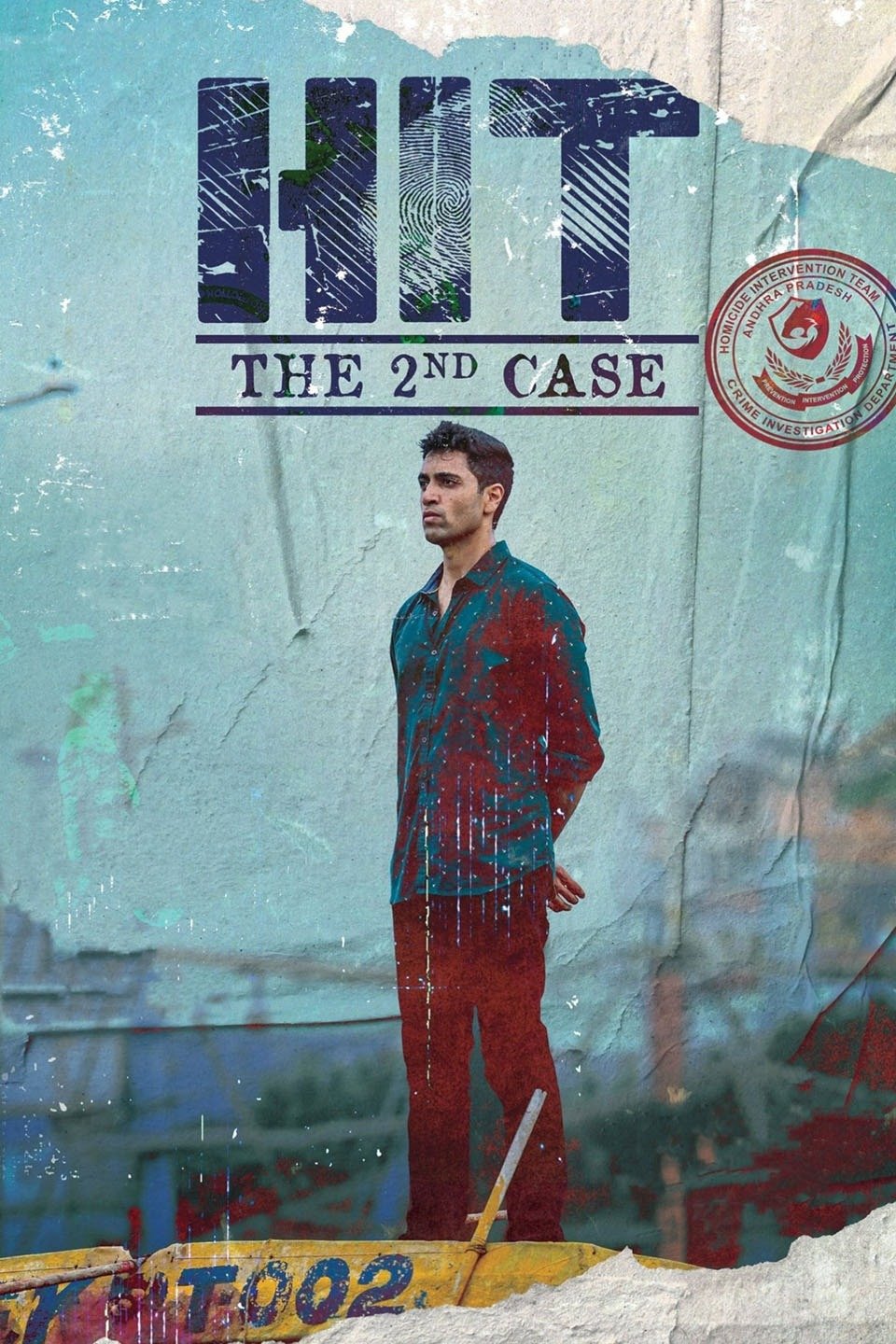
HIT1 introduced us to the Homicide Intervention Team and investigator Vikram Rudraraju, and I was hopeful that HIT2 would reveal more of his back story. But instead we have a completely different case, in Vizag this time instead of Telangana area, and a new investigator Krishna Dev (Adivi Sesh). I didn’t enjoy this film as much as the first one and I definitely missed Vishwak Sen, but HIT2 has a few suspenseful moments and the investigation twists keep the film interesting.
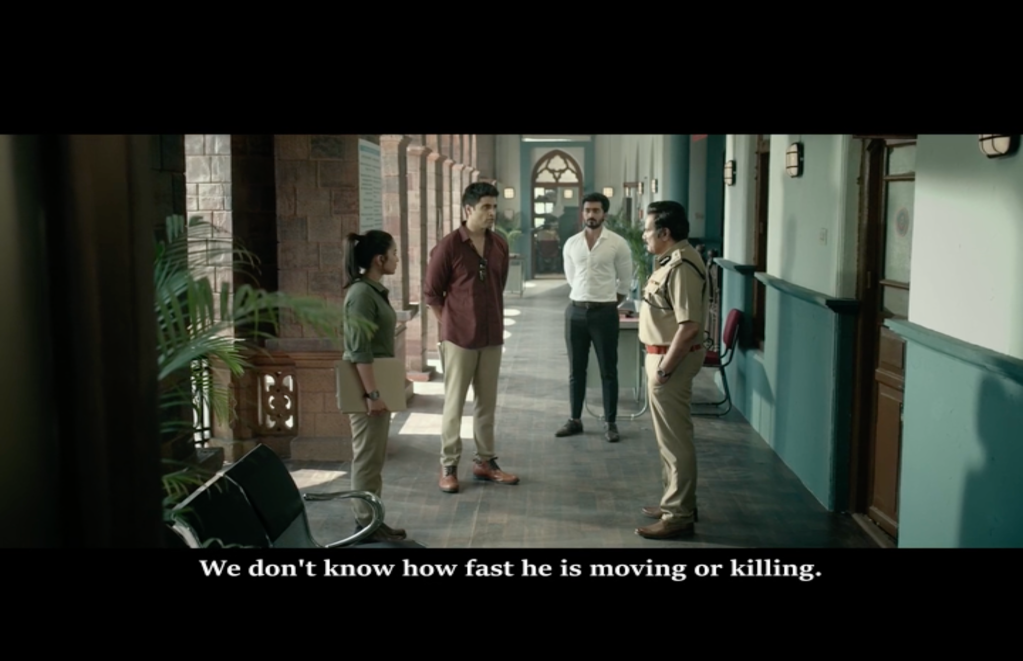
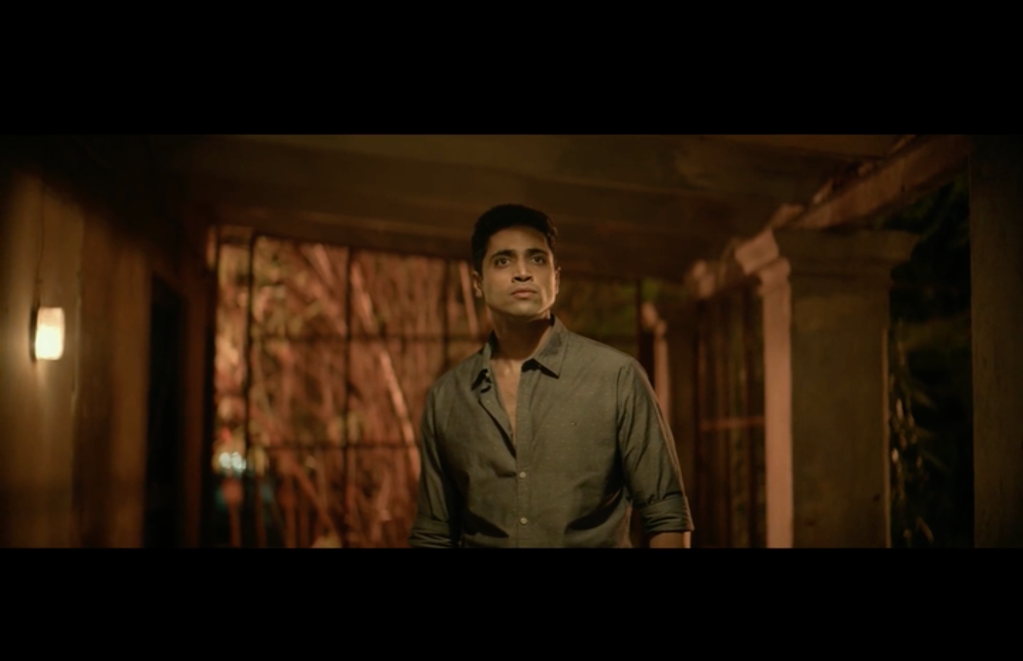
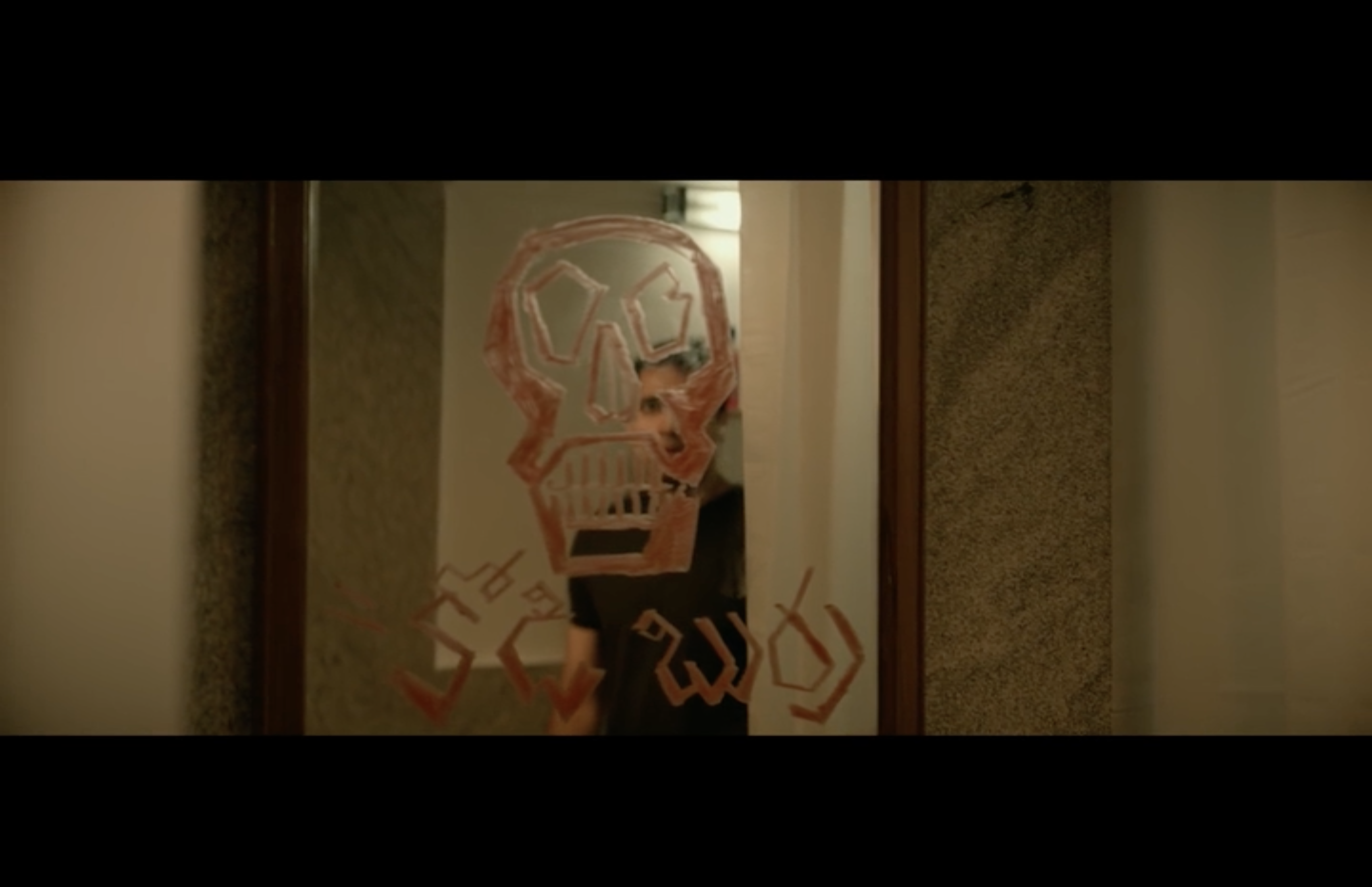
The action takes place in Vizag where Krishna Dev (aka KD) has a new boss, DGP Nageswara Rao (Rao Ramesh), but not much excitement in his cases which he describes as being committed by stupid criminals. In the opening sequence he solves a murder in just a few minutes, much like the beginning of HIT1 where just a few clues allow for some major jumps in investigation and an easy solve of the case. At the start of the film, KD also asks his girlfriend Aarya (Meenakshi Chaudhary) to move in with him, and again, everything is smooth and easy. She moves in, her mother (the excellent Dhaasshyam Geetha Bhascker) comes to stay and even though she does not approve of the live-in arrangement, doesn’t cause any major arguments. The romance mainly plays out in a song and Aarya seems to only be added to the film to give KD another potential victim to try and protect. Just to make this even more obvious, Aarya quickly falls pregnant, giving KD another reason to keep her safe. There is little passion or emotion between the two and generally KD seems rather cold to everyone, which makes this part of the story seem rather clinical and formulaic. Basically, there is a murder, clues are left behind and KD works to put everything together and find the killer. The addition of Aarya and her unborn baby should have been the key relationship to add emotion and drama, but there just isn’t much warmth here.
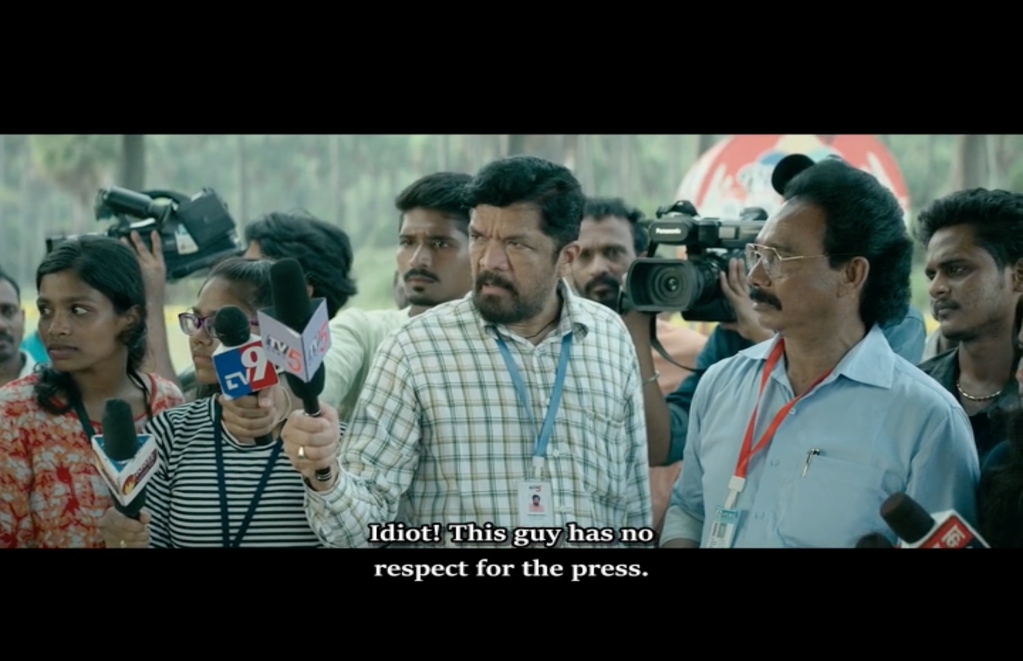
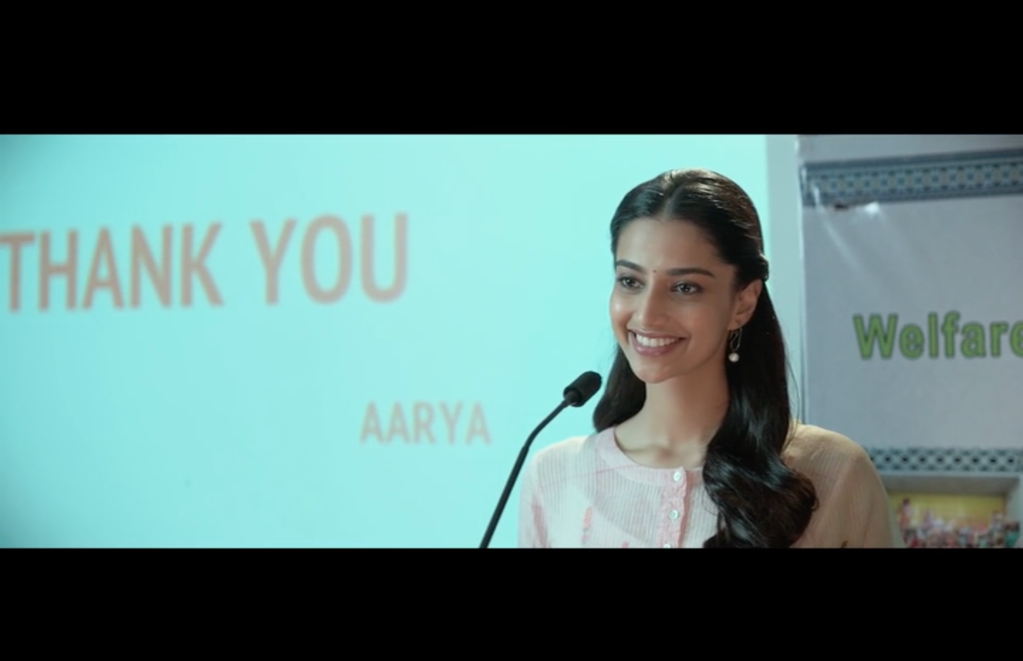
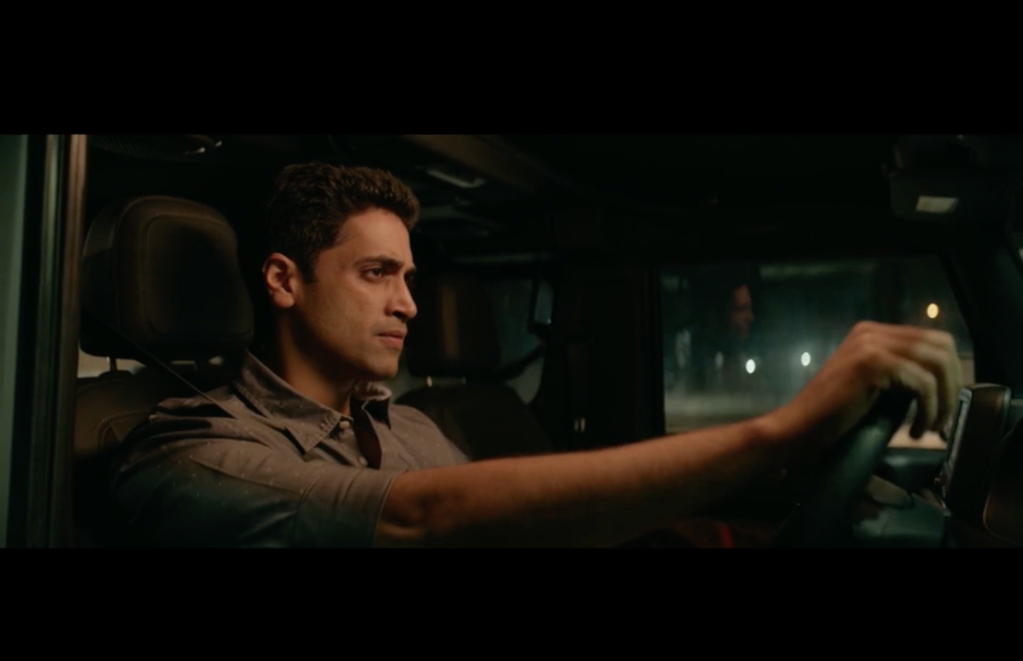

The second case starts when a young woman is found murdered at a bar, and KD is brought in to investigate. Her head, torso and limbs have all been severed, and although the head is immediately identified as the bar manager, Sanjana (Anu Varna), forensic investigation reveals that the torso and limbs belong to different women. KD has not only to find the killer, but also needs to identify the other victims, with only a bite mark, a club stamp and some shoe prints as clues.
Still following the beats of the first film, KD has a potential antagonist to work with and this time it’s his subordinate Varsha (Komalee Prasad). The pair apparently have history (although the specifics aren’t revealed) and on learning of her appointment to his team, KD immediately tells her she annoys him and quickly dismisses her. But aside from ignoring Varsha for most of the first half, there is no significant friction between the two and Varsha copes well with her arrogant boss. Abhilash (Maganti Srinath) who was Vikram’s rival in the first film appears here as well, visiting Vizag to get some help with a case in Hyderabad. There are links back to HIT1 and some of the events with Vikram, giving some hope that perhaps Vikram’s story will get some resolution in subsequent films.
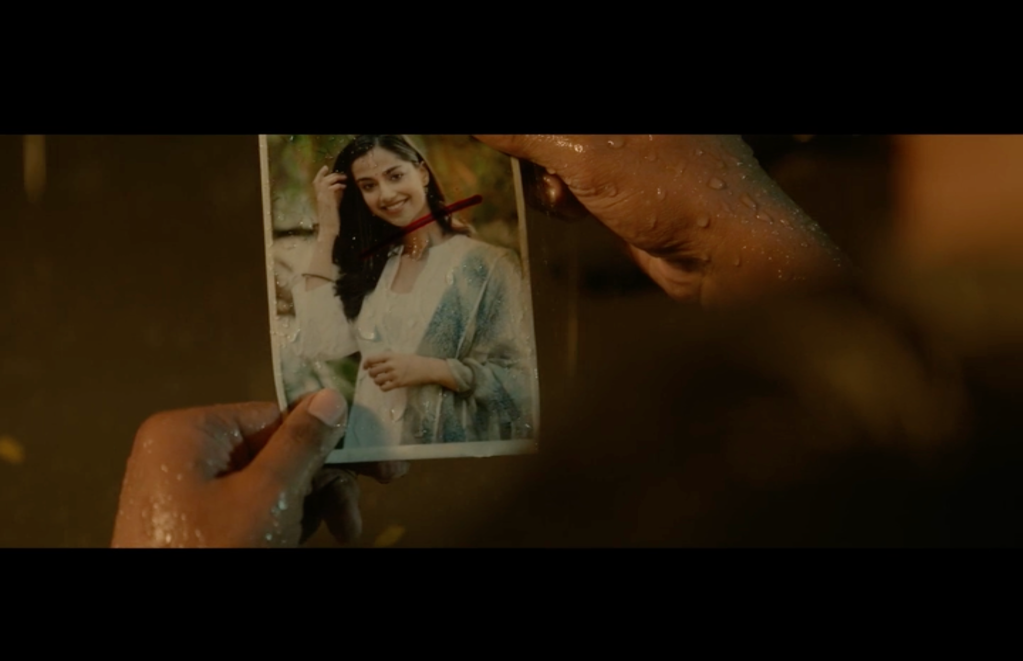
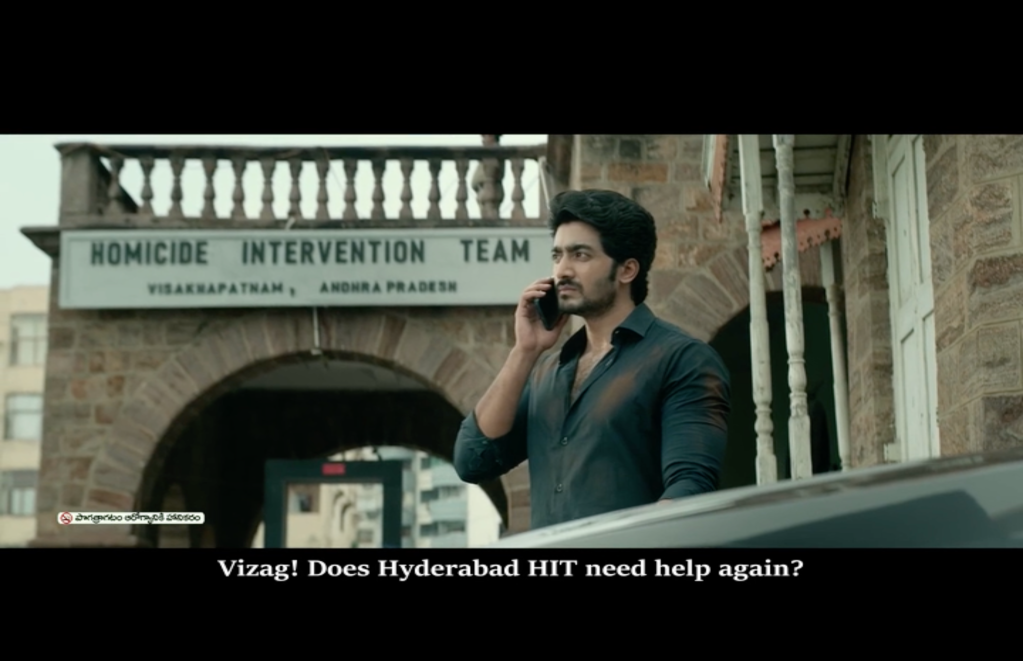
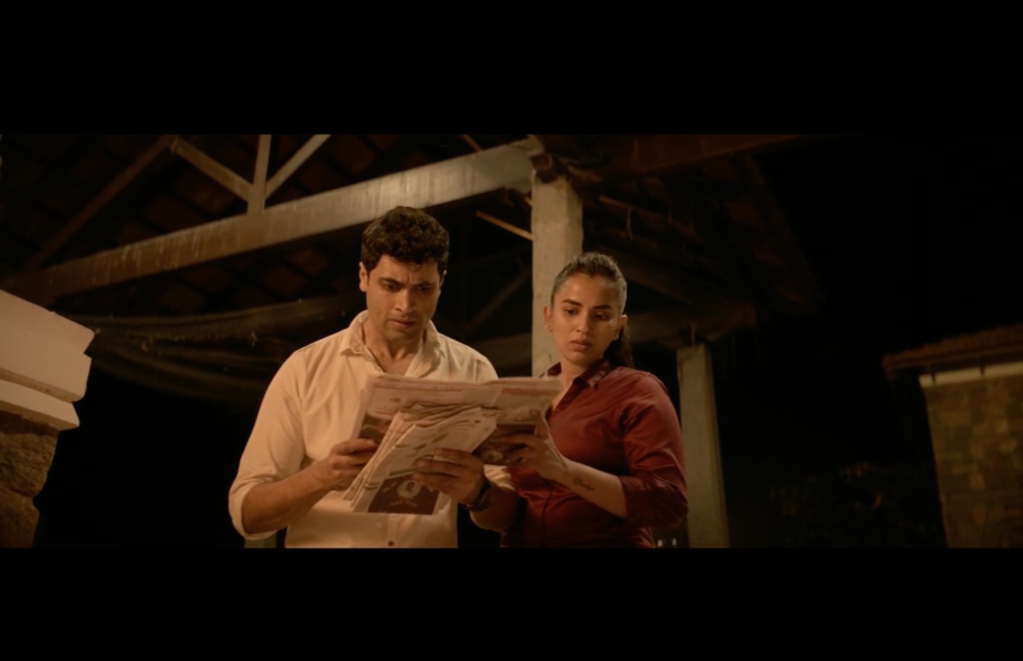

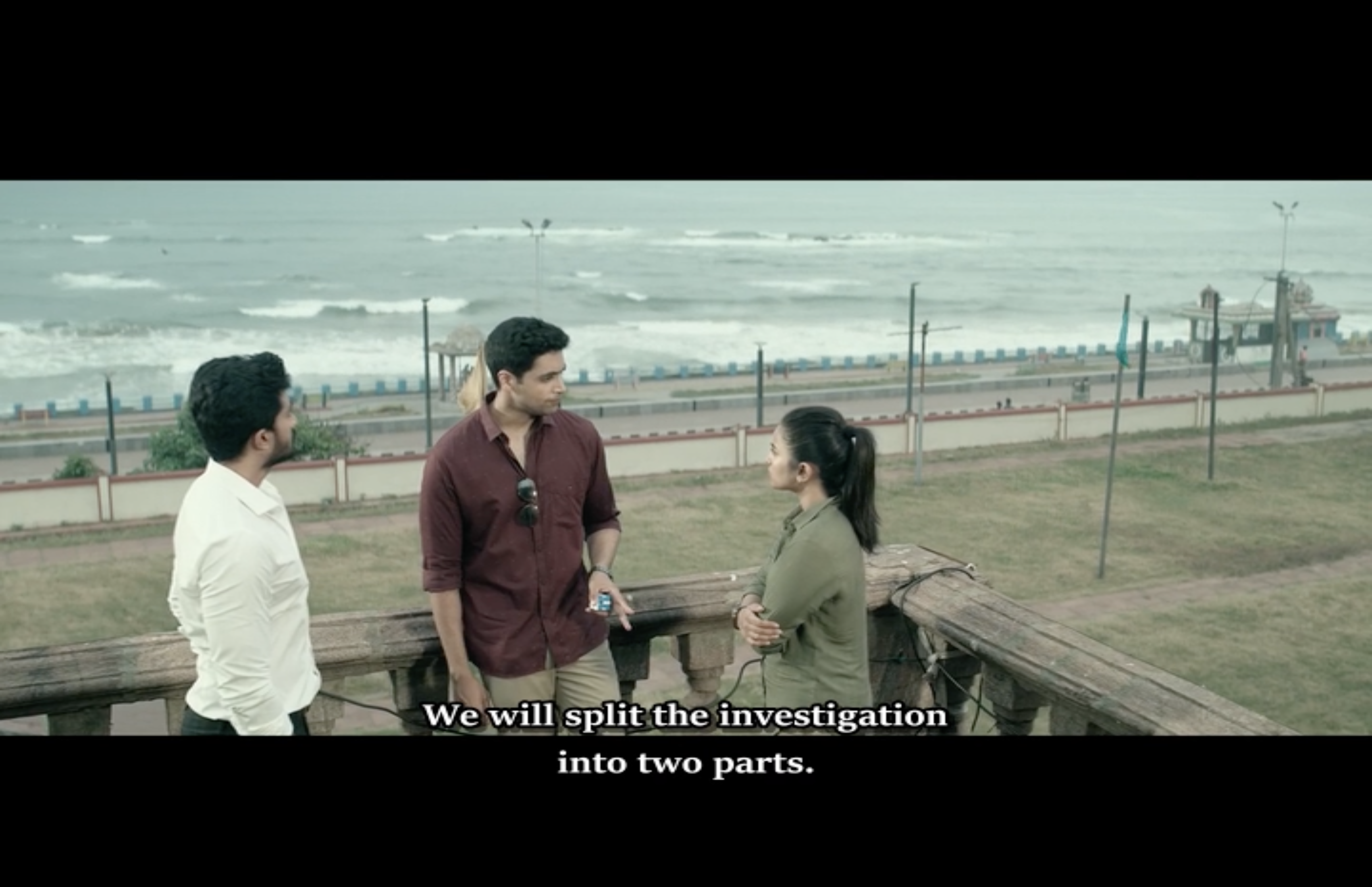
There is little suspense in the investigation until the second half, when KD and Varsha find a potential link and start to discover the identities of the other victims. They find a suspect and there is an encounter scene which ramps up the tension while Sanjana’s friend Rajitha (Divya Narni) and Aarya are both threatened by the killer, adding to KD’s problems. But the finale is a bit of a let down, with a protracted torture scene and plenty of blood and gore that still doesn’t pack much of a punch. Perhaps it’s the contrived fight scene at the start, or rather formulaic denouement, but the only character I was worried about during all the bloodshed was KD’s dog Max, who has a fairly significant role to play at the end.
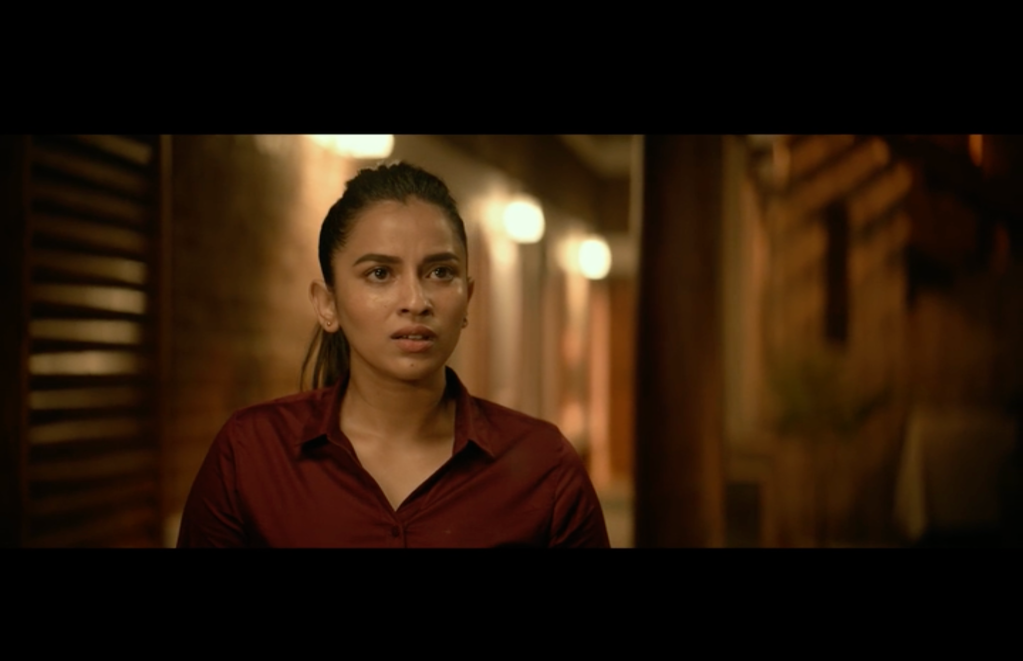
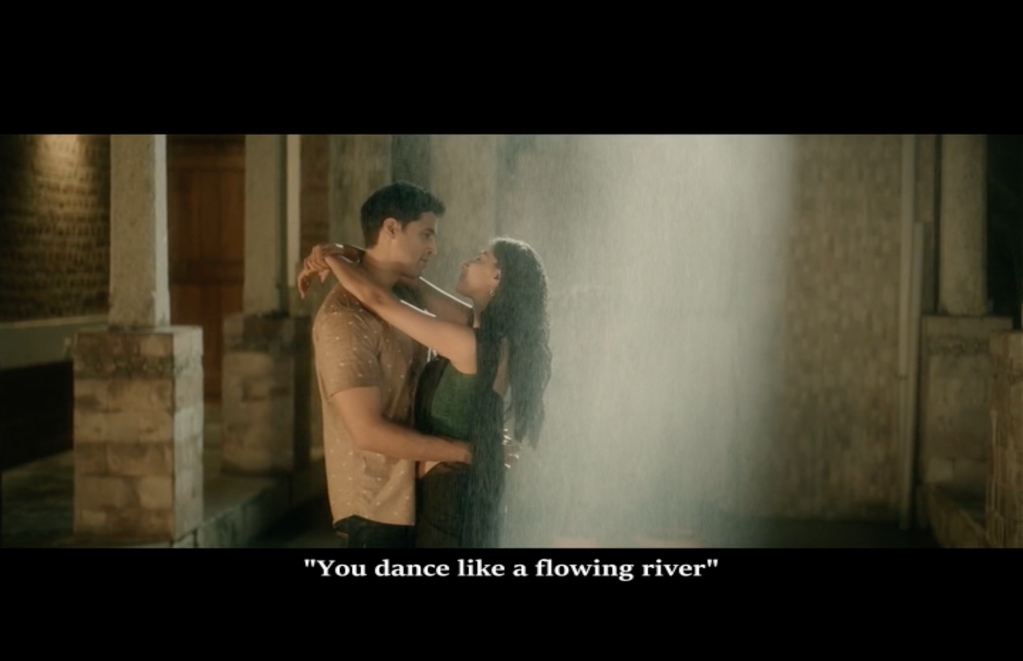
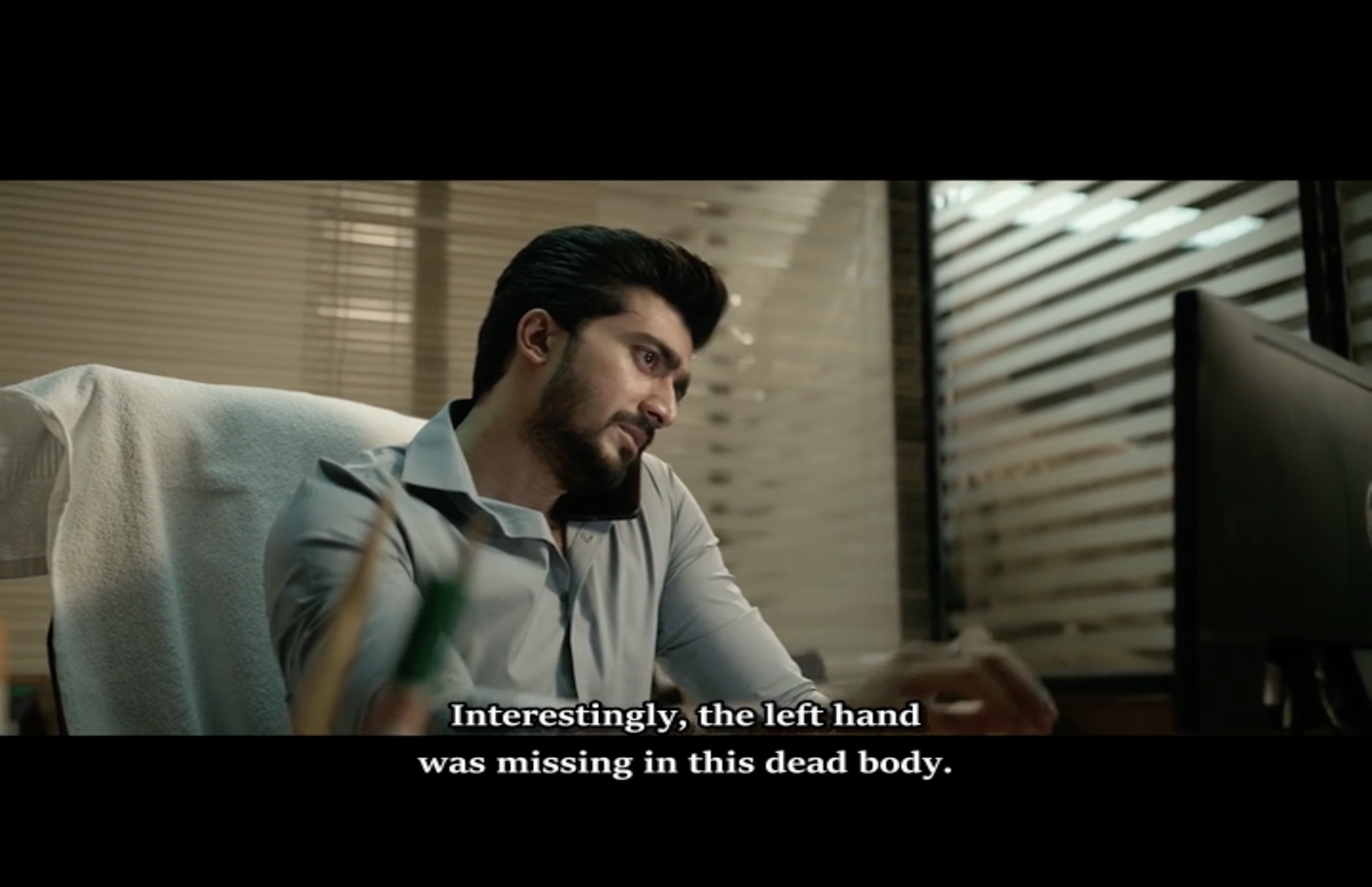

Part of the problem I had with the film was the character of KD who appears arrogant and entitled for much of the first half. His behaviour to Varsha is particularly obnoxious without having any backstory to account for his attitude. KD also seems to treat Aarya like a possession, and for all his modern theory about wanting to live together before marriage to check that they are suited, it all comes across as tediously superficial. There is little warmth to their ‘romance’ and Aarya could have been replaced by any other possible victim for KD to react in much the same way. Adivi Sen is fine in the role of KD, but the character is just quite unlikeable, which makes it difficult to care about what is happening. Komalee Prasad fares better as Varsha and gets to show that she can be a good investigator when given the chance. Hopefully she will return in the third case.
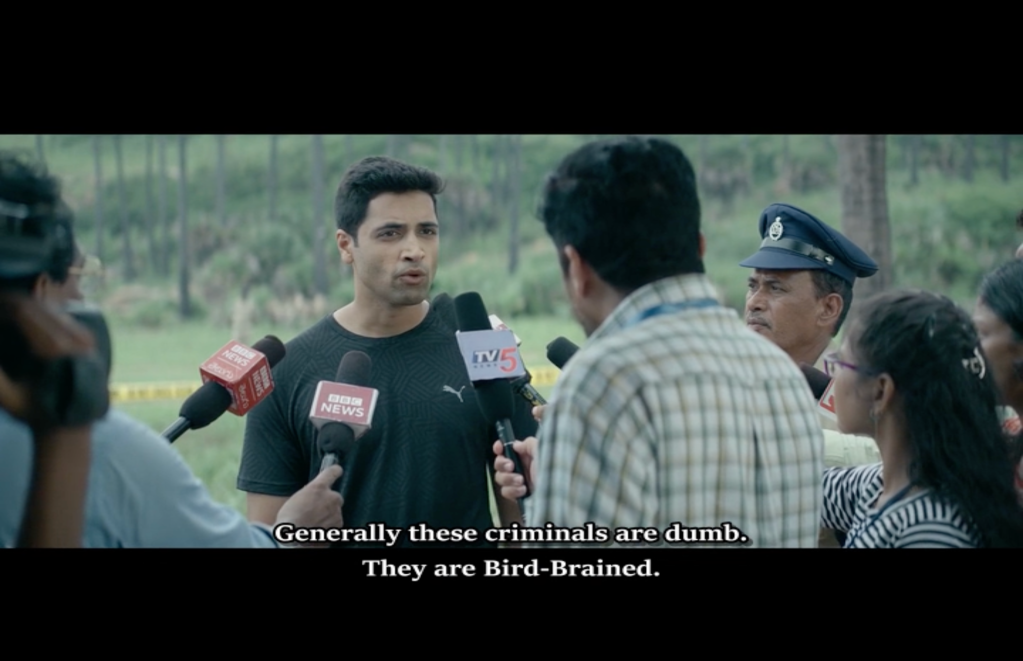

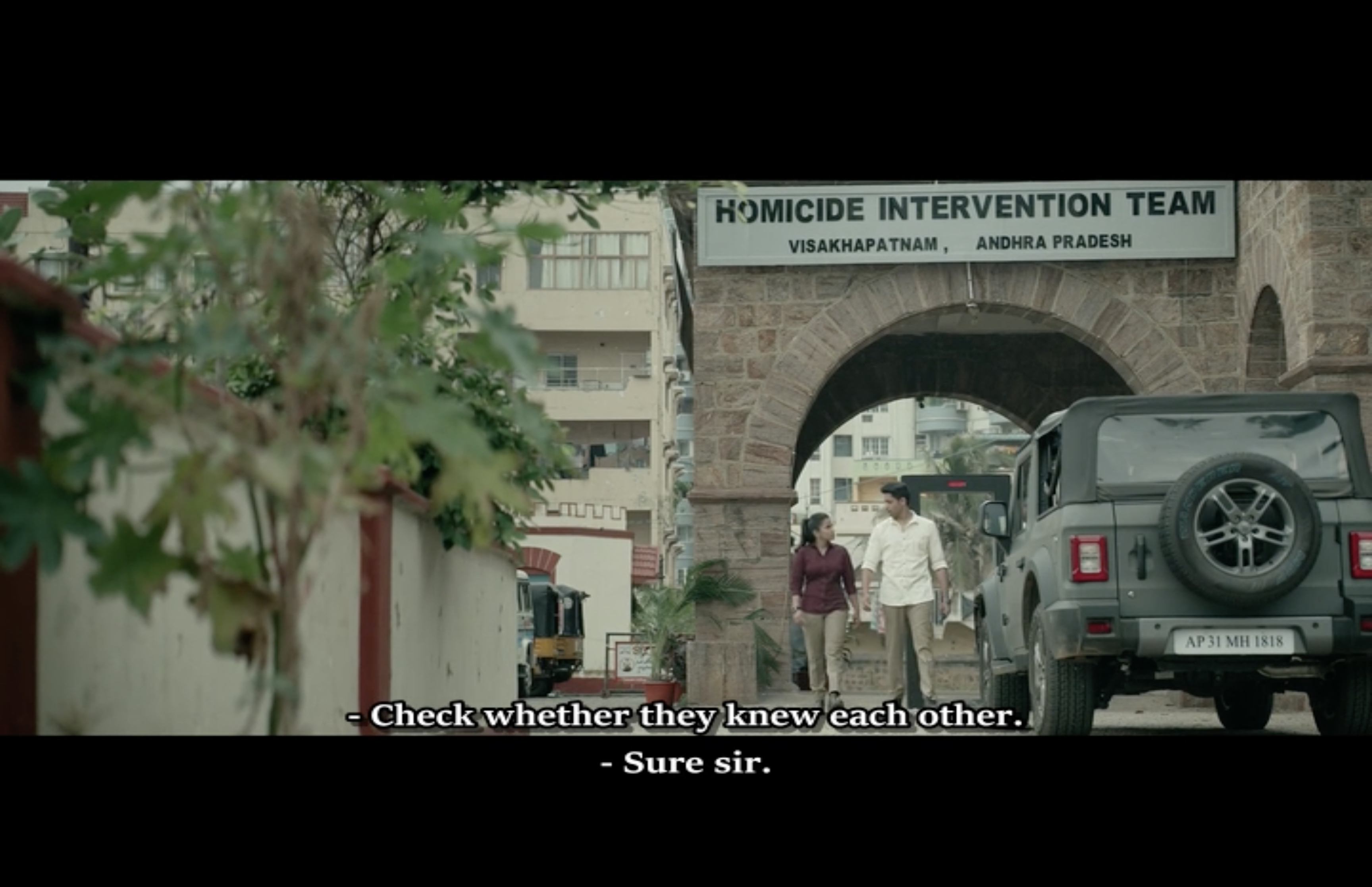
Another oddity is the character of DGP Nageswara Rao who seems to think he’s in an American cop show. He’s antagonistic towards JD, tries to hush up various parts of the case and generally seems corrupt, but without having any rationale behind any of his actions. It’s an odd note in an otherwise fairly straightforward police procedural, and I’m really not sure what Sailesh Kolanu was aiming for. Also incredibly frustrating is a number of written clues that appear onscreen without any subtitles. There is a message left behind for JD and clues in newspapers, but these are all written in Telugu and while JD does discuss them with his colleagues, they don’t talk about what they say. While eventually it’s possible to work out what is going on, it’s annoying not to be able to understand what some of the key pieces of the puzzle actually are.
While HIT2 definitely benefits from Sailesh Kolanu’s experience making the first, the story here isn’t as gripping or the characters as immediately sympathetic. It’s still a fairly solid drama and I have hopes that the third case will be the best yet. 3½ stars.





















































